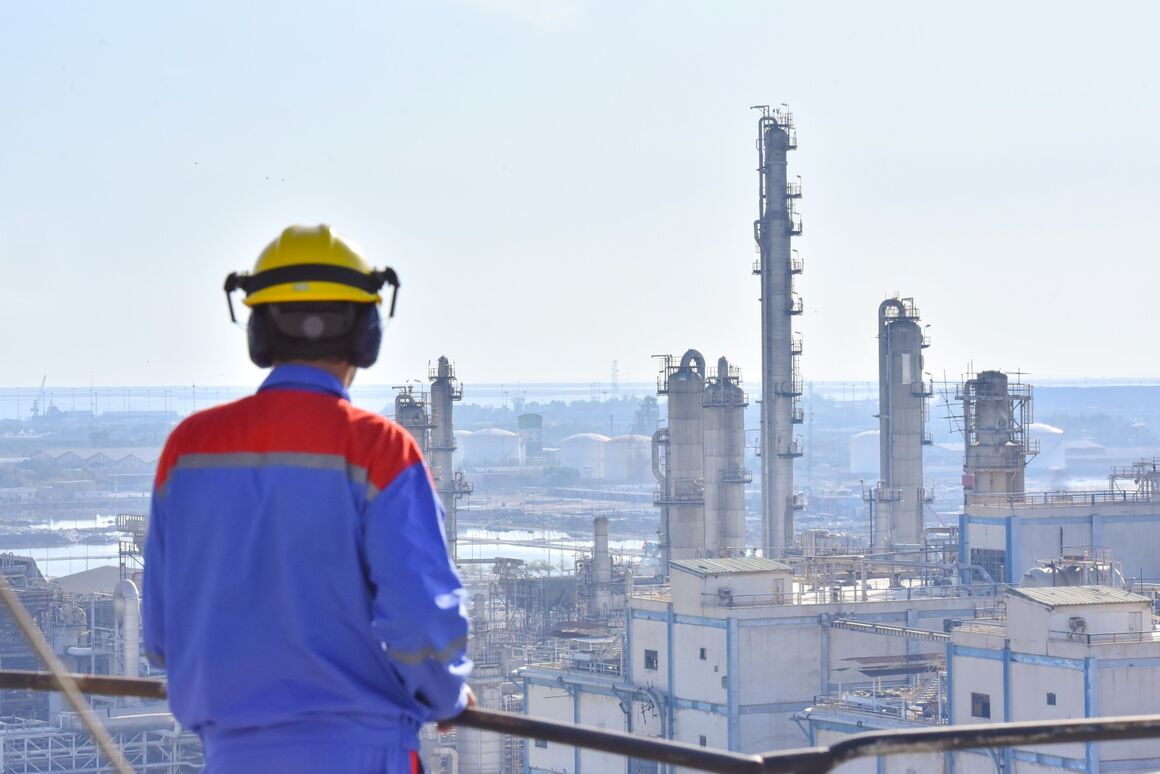This approach, aimed at maximizing value-added creation for the national economy, significantly contributes to the country's economic dynamism and growth and plays a crucial role in achieving the 8% growth forecast envisioned in the 7th Development Plan.
The year 1404 began with the slogan "Investment for Production" to highlight the importance of domestic production for economic actors and the general public. In line with this approach, an 8% economic growth rate is projected for the country in the 7th Development Plan. Consequently, the 14th administration has also placed special emphasis on boosting production in the country's industries, including the petrochemical sector, which accounts for approximately 25% of non-oil exports and 19% of value-added.
Furthermore, through the development of its value chain in downstream industries, the petrochemical industry holds significant potential for job creation and entrepreneurship, enabling it to play a fundamental role in achieving the goals of the 7th Development Plan and the nation's economic growth.
The production performance of the petrochemical industry under the 14th administration, from late August 2024 to late July 2025, has been reported at 66.8 million tons. To realize the macro and strategic goals of the National Petrochemical Company (NPC), this industry must achieve an annual nameplate capacity of 131.5 million tons by the end of the 7th Five-Year Development Plan.
To this end, the development of the industry's value chain in priority sectors has been planned under the 7th Development Plan, including an 11.6 million-ton increase in propylene production capacity, a 700,000-ton methanol chain capacity, a 3.3 million-ton ethylene chain capacity (excluding polyethylene), an 8.6 million-ton polyethylene production capacity, and a 3 million-ton downstream aromatic capacity.
The nameplate capacity of 73 petrochemical complexes reached 96.6 million tons in the year 1403 (2023/24), with 75 million tons of products actually produced, indicating a 78% utilization rate. This leaves approximately 22 million tons of unrealized production, 70% of which is due to feedstock shortages. Therefore, the NPC is focused on removing obstacles to securing stable feedstock for the petrochemical industry through various methods. Utilizing flare gas and investing in field development are among the most important methods for supplying feedstock to petrochemical complexes.
In flare gas recovery, the largest project is the East Karun Flare Gas Recovery project, currently being implemented by the Bid Boland Persian Gulf Gas Refining Company. In field development, a contract was signed at this year's oil exhibition between the National Iranian Oil Company (NIOC), Bakhtar Petrochemical Company, and Petro Farhang Holding for the development of two fields. Upon execution, 31 million cubic meters of gas per day will be returned to the industry, enhancing production productivity and increasing petrochemical output.
Furthermore, the operationalization of four feedstock supply projects is planned for the year 1404 (2024/25). Among them, the NGL 3100 project, aimed at recovering flare gas from fields in the south of Ilam province, was recently inaugurated by the President. In addition to its special focus on value chain development, the 14th administration has also seriously prioritized completing semi-finished projects.
According to plans, 15 petrochemical production projects will become operational by the end of this year, pushing the industry's capacity beyond 100 million tons. The commissioning of these 15 projects will add at least three new products to the industry's portfolio.
Creating high value-added through the development of downstream industries is another unique feature of the petrochemical industry; for some products, 100% value-added is created. By utilizing the base products of this industry in downstream and complementary industries—such as polymers, plastics, synthetic fibers, detergents, health and beauty products, automotive parts, paints, and home appliances—significant value-added is generated within the country. The development of related small-scale industries plays a vital role in enhancing the petrochemical industry's value chain.
Despite significant challenges such as feedstock supply, international sanctions, currency fluctuations, and logistical issues, the National Petrochemical Company is striving to overcome obstacles and guide the industry on its development path by offering incentive schemes, utilizing domestic capital, and implementing the law for the attraction and support of foreign investment.
Complementary industries also face challenges like providing liquidity and working capital for purchasing raw materials. Increasing the credit sales of petrochemical products on the commodity and energy exchanges and utilizing the full potential of petrochemical companies can help revitalize these units and facilitate the supply of necessary feedstock for complementary industries, thereby completing the value chain.
The 14th administration, emphasizing the realization of the 7th Development Plan's goals and achieving 8% growth for the national economy, has a special focus on the petrochemical industry. With the inauguration of this year's projects, the one-year objectives of the 7th Development Plan are expected to be met.


Your Comment